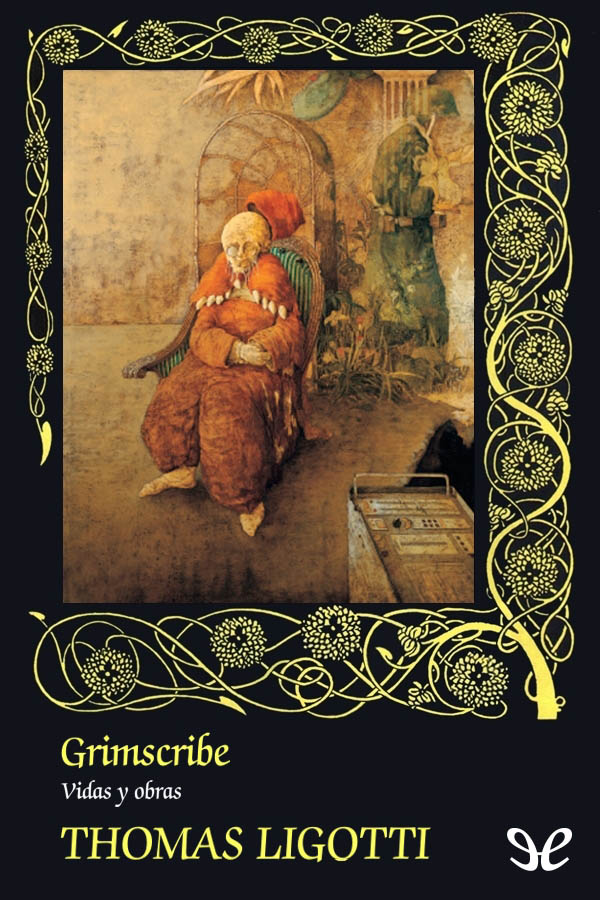

In his stories, Ligotti has followed a literary tradition that began with Edgar Allan Poe, portraying characters that are outside of anything that might be called normal life, depicting strange locales far off the beaten track, and rendering a grim vision of human existence as a perpetual nightmare. His work is noted by critics for its display of an exceptionally grotesque imagination and accomplished prose style. Thomas Ligotti is often cited as the most curious and remarkable figure in horror literature since H. You can read this before Teatro Grottesco PDF EPUB full Download at the bottom. Here is a quick description and cover image of book Teatro Grottesco written by Thomas Ligotti which was published in 1997-9. (I doubt if it works on batteries as the narrator proposes!).Brief Summary of Book: Teatro Grottesco by Thomas Ligotti LATER EDIT: The story is also like the story's own TV that works without electricity.

Yes, yes, I did get out, because I’m destined to re-read (& comment on) all the other stories in ‘Teatro Grottesco’ as part of this project I’ve set myself. Or maybe I didn’t escape this time, and I’m still there, hanging in its world? The next time I re-read ‘Purity’, I may not be so lucky. “Nonsense” elsewhere in Ligotti) for something else that truly tries to get through the layers of disintentionalisation towards me. The Father’s three principles are just a nonsensical decoy or subterfuge (Cf. Any story title is often a loophole we can cling to. The Purity is the need to disentangle from the story unscathed, unblemished. “Nothing that drives anybody makes any sense.” “There’s nothing in the attic It’s only the way that your head is interacting with the space of that attic.” The story is not about but is Candy as described by the story. The story itself is my (the reader’s) own Candy. The feel of this story reminds me of ‘Eraserhead’ and ‘House of Leaves’ but something much more which is tantalisingly within my grasp – only to fall into the basement of the story figuratively and literally.

renting reality from fiction (or vice versa?). This is about insulation, disintentionalisation, holding things beyond one’s own ownership, i.e. We never really know what will be under a stranger’s boxer shorts. PURITY – The narrator is dead pan, logical about illogicality – and, therefore, from among the many narrators I’ve met in all fiction over the years, he or she (here in ‘Purity’) is one of the most dependable, if not 100% dependable. For the next few weeks (or months), I intend to re-read my Durtro hardback edition of Teatro Grottesco (2006) and make a critique of each story in turn on this thread - followed by my personal 'gestalt' impression of the whole book, hopefully 'disintentionalised' of anything I know about TL as a person.


 0 kommentar(er)
0 kommentar(er)
